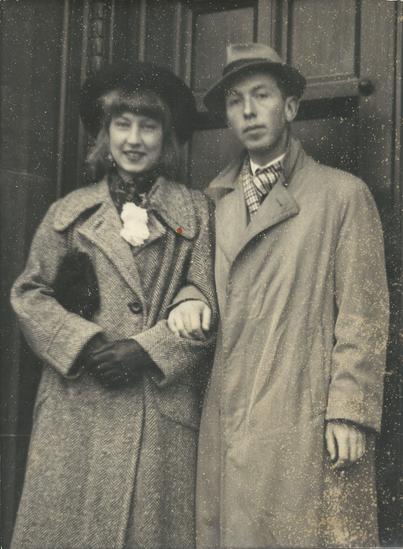
Musse was a mother and a fighter
Resistance fighter Musse Hartig did not adhere to the typical female role of the era. She is one of the five main characters you can get acquainted with at the Museum of Danish Resistance.
One day, Musse Hartig was walking down Christian IX’s Street in Copenhagen with an acquaintance she had met on the street. In her handbag is a gun that she has just collected. As she turns the corner, she unexpectedly encounters a German raid in progress.
Musse’s friend is perplexed by the unfolding situation, but he allows the German soldier to search him.
Musse smiles and cheerfully offers her handbag for inspection to the German soldier and pretends to begin to open it.
“Dame nicht, Dame nicht” [not the lady], he exclaims.
Musse Hartig hastens away, on very shaky legs. Once she is at a safe distance, she bursts into tears.
The daughter swallowed a cartridge
As action-packed as Musse's life is on the one hand as an active resistance woman in the communist unit of the sabotage organization BOPA, on the other hand, her life is also quite ordinary. When she is not acting as a courier for the communists, she is changing diapers on her daughters Lulu and Susanne, cooking meals and waiting at home when her husband, Knud, is out participating in sabotage operations.
In 1944, Musse and Knud had to go underground with false identity papers, when the Nazis were on to them.
She leaves both daughters behind - the just 14-day-old Lulu at Queen Louise's Children's Hospital in Copenhagen and the barely 2-year-old Susanne at the coastal hospital in Refnæs. Susanne lets out a heart-breaking cry, as her mother walks away, leaving her there.
This is just one of many difficult choices Musse must make in the course of the occupation.
But what makes a woman leave her children? And how did Musse Hartig fare afterwards? At the Museum of Danish Resistance, you can delve into her life choices and the consequences these actions had for her subsequently.